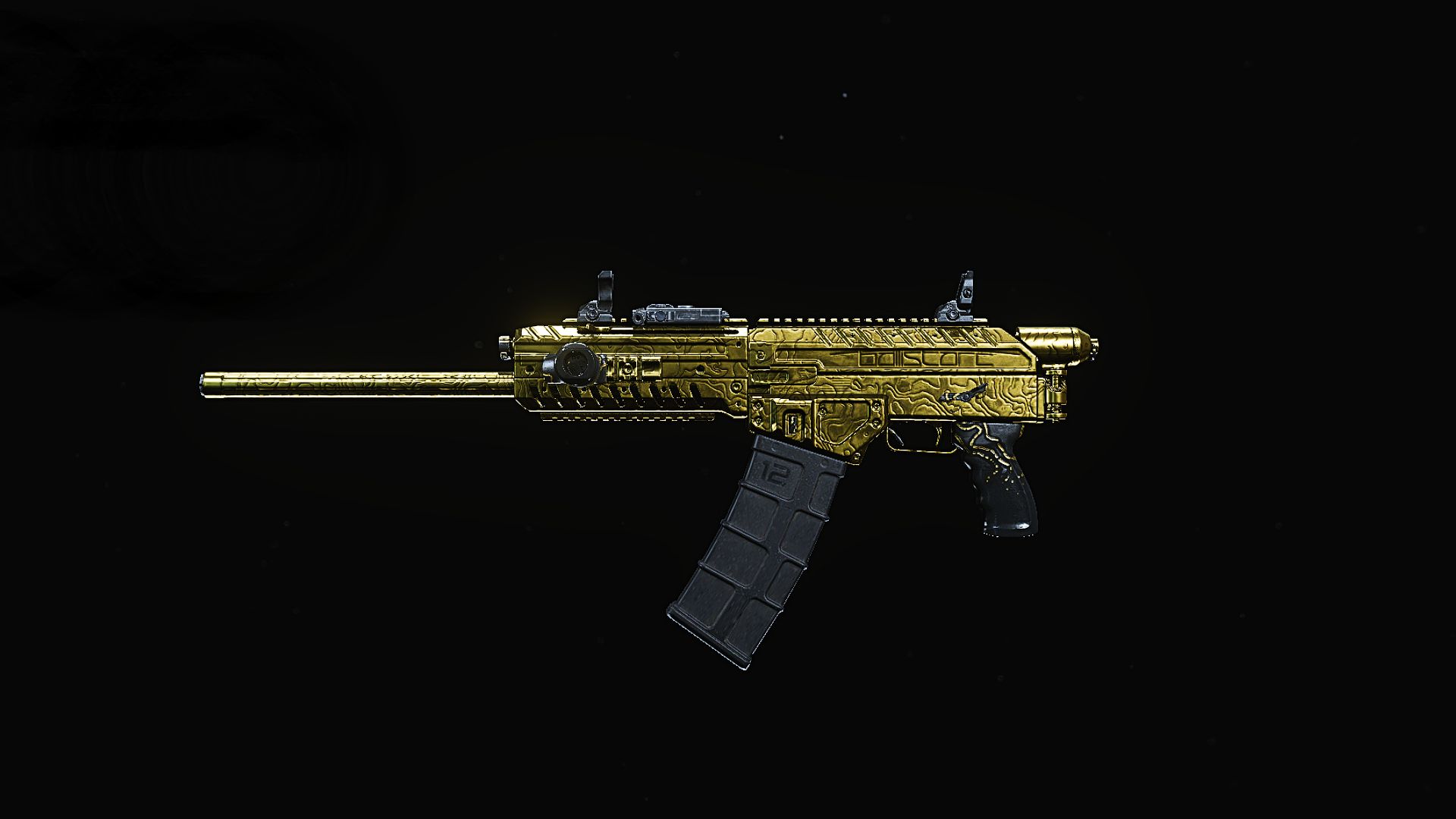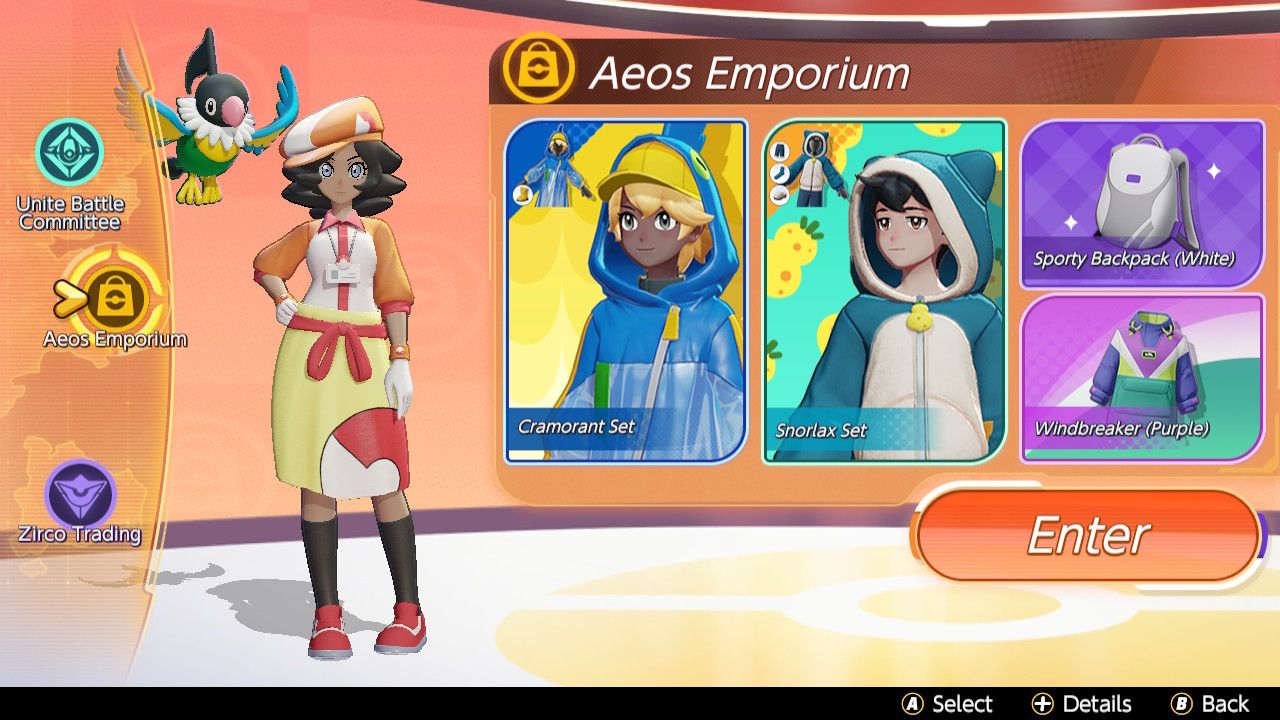
Quick Links
With Rogue Company way past its closed beta, players can get their hands on Hi-Rez Studios' team-based shooter. And, as with most games of this type nowadays, there's an entire cast of characters (or Rogues) to choose from. Rogue Company doesn't put too much emphasis on classes, such as intel, breacher, defender, and support, so there's nothing like the role locks in Overwatch.
RELATED: Rogue Company: A Complete Guide To Ronin
However, each Rogue fills a specific role for the team based on their unique abilities. These may not act as strict "classes," but they can be used to get a general idea of the character's strengths. Here are the six current classes/roles that Rogue Company's cast is split into.
Updated on July 9, 2021 by Rebecca O’Neill: Rogue Company has kept the same types of classes since its release, but a few new faces have joined the mix. There are now 21 rogues in all for you to unlock, with more to come in the future. This guide has been updated to show you which Rogues fall under which classes, as well as explanations for them under each class.
It can help you decide what role you want to play on your team as you propel yourself to victory. You will gain a deeper understanding of each of the classes and narrow down your search for the best rogue that fits your playstyle.
Defender

This is a fairly self-explanatory class that is at its best when defending an objective. Defenders have abilities that can deny key areas from the opposing team, letting you create space for your allies to set up and prepare.
For example, Anvil's ability creates a barricade that can be used as cover, while Trench slows down enemies with barbed wire. Mack's ability allows him to push back enemies with an enormous flashbang and Vy is just as useful with her poison pools. It is easy to avoid combat mistakes when using them, and here are some of the ones you might be making.
Despite the name, it's still fine to use defenders when on the attacking team in demolition. If you can plant the bomb while the enemy team is distracted, a few well-placed defender abilities will push the tide of battle in your favor.
Rogues
- Anvil
- Trench
- Mack
- Vy
Breacher
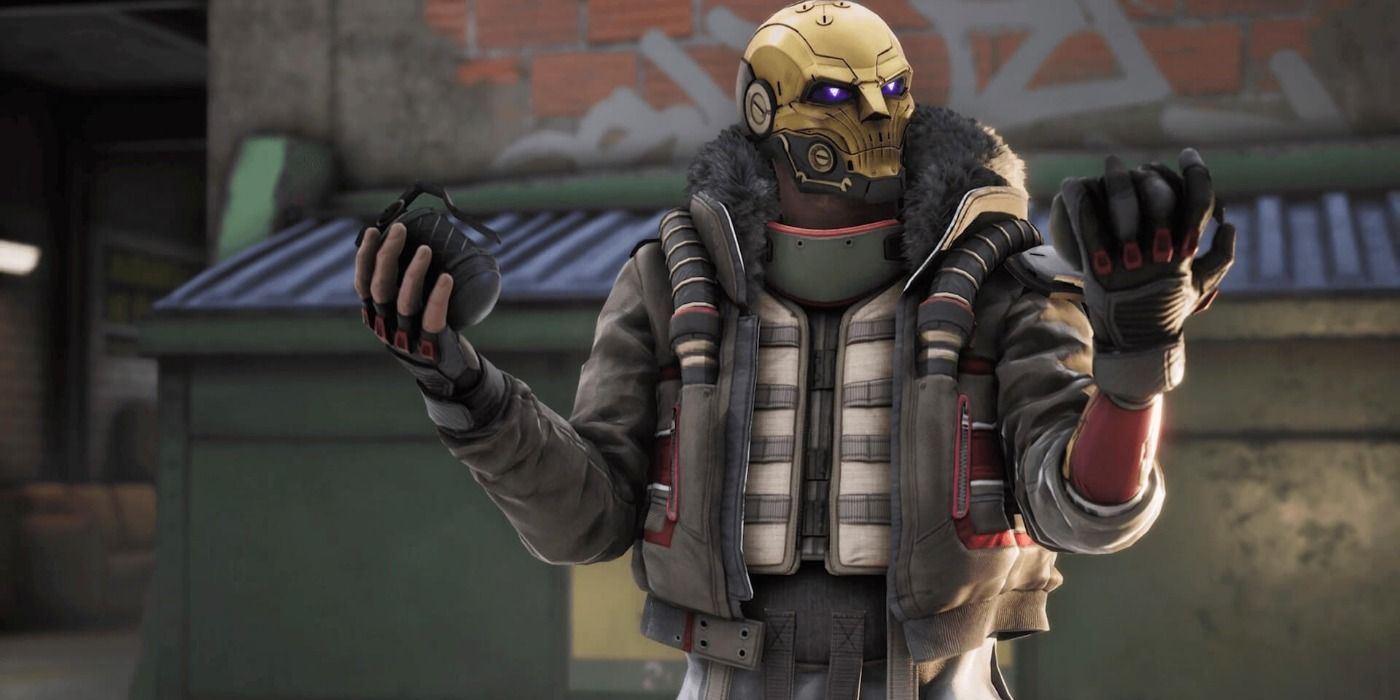
As the antithesis to defenders, breachers are all about pushing towards objectives. They're great at destroying enemy equipment and can disrupt foes long enough for teammates to rush in and clean up.
The breachers that are currently available go about their role in different ways. Dima is straightforward, using his cluster grenade launcher to push enemies back and take out fortifications. Meanwhile, Gl1tch can hack an enemy to disable their abilities, or hack equipment directly to destroy it.
Sigrid utilizes a shield to block incoming attacks from opponents and her weapons were made for close-range fights. Switchblade is a newer Rogue with a Napalm Warhead and increased movement speed after using one of her specialty gadgets or abilities.
Rogues
- Dima
- Gl1tch
- Switchblade
- Sigrid
Duelist
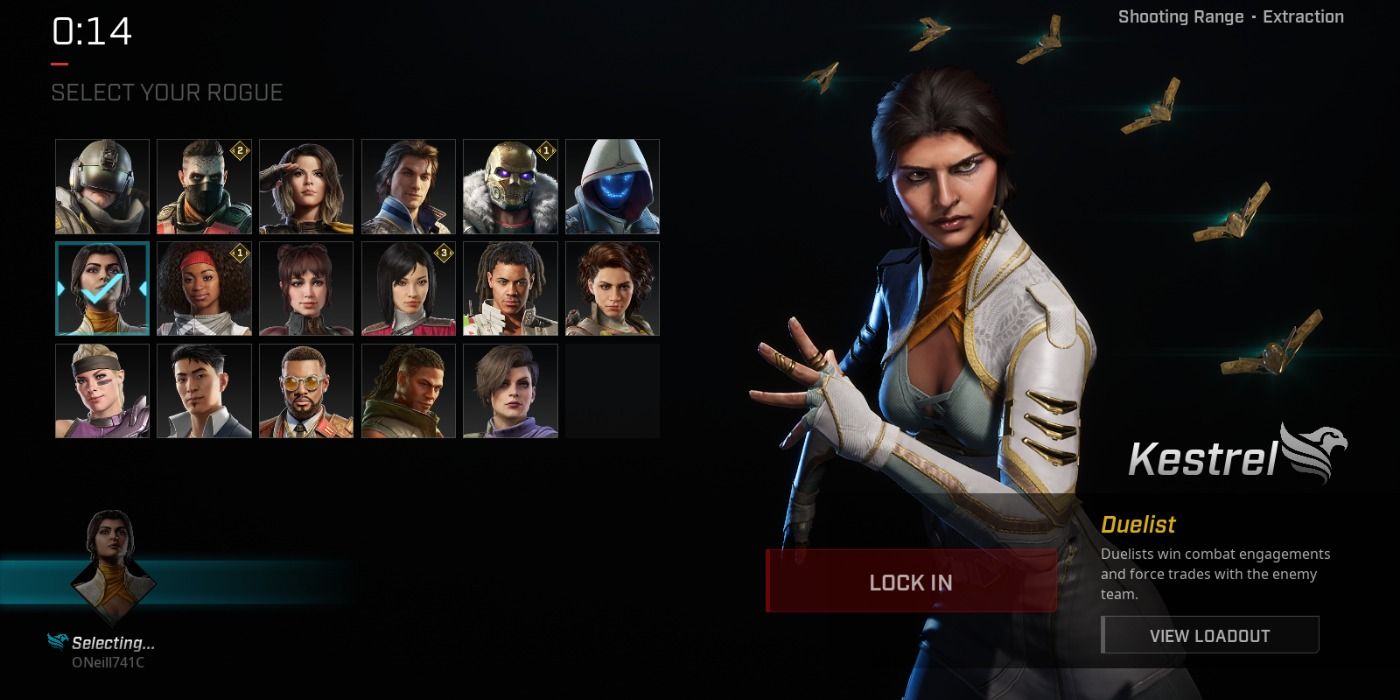
Duelists are the damage-focused class of Rogue Company. Obviously, all classes are capable of dealing good damage, but each duelist has their own tools to make mowing down enemies an easier task.
Related: Rogue Company: Character Tier List
Scorch can set enemies on fire, damaging enemies even if they manage to take cover, and Chaac's stim pack gives him an extra health boost which is invaluable in 1v1 fights. Duelists also start with strong secondary weapons, giving them the edge early on.
Ronin has the Ballistic Knife and great close-range weapons, similar to Lancer. Kestrel, on the other hand, has an assault rifle that makes her dangerous at medium range. Not to mention the destructive drones that make her an even more formidable opponent even in the hands of beginners with a few tips and tricks.
Rogues
- Scorch
- Chaac
- Ronin
- Kestrel
- Lancer
Intel

Intel Rogues offer more utility for the team, at the cost of slightly lower damage potential compared to duelists. Based on the three intel characters currently in Rogue Company, it seems like this class's role is to reveal the position of enemies.
Talon's radar dart lets you discover enemies in a specific area, while Dallas can only show a single enemy with each ability use. Unlike the radar dart's single use per round, Dallas can recharge his ability after downing an enemy, promoting an aggressive playstyle similar to duelists.
Seeker is an archer whose arrows reveal the opponents' positions who are sitting along its flight path. It will give your team insight into their strategy and his silent footsteps perk makes him truly deadly.
Rogues
- Talon
- Dallas
- Seeker
Sniper
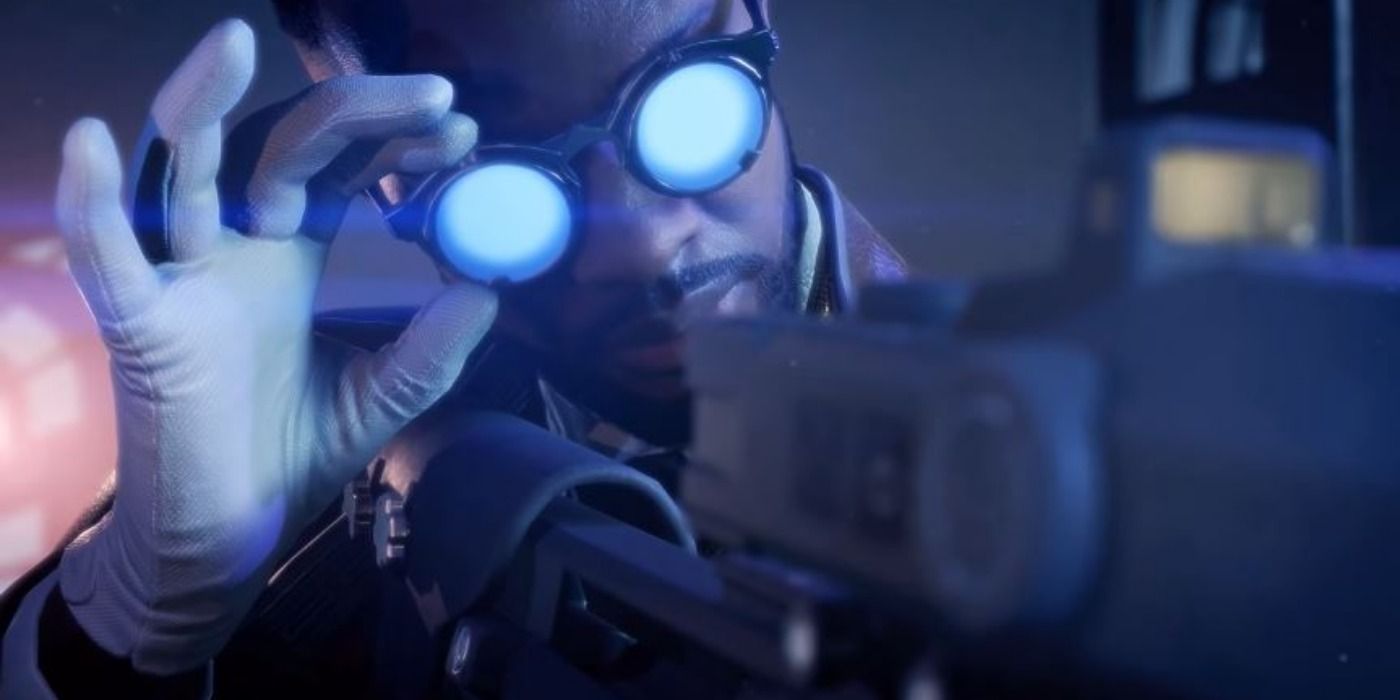
Sniper is another self-explanatory class that only two Rogues are categorized as right now. If Phantom is any indicator, all snipers will have the longest effective range of the cast, letting them take shots that other Rogues could only dream of.
Phantom and The Fixer are not the only characters to have access to scoped weapons, but no one else is able to use a sniper rifle. Furthermore, Phantom's sticky sensors and nano smoke ability reveal enemies in a similar way to the intel class.
The Fixer can see enemy heat signatures which makes them an easier distance target when using the Tyr sniper rifle, even if it isn't a great weapon to use, as shown by this ranking.
Rogues
- Phantom
- The Fixer
Support
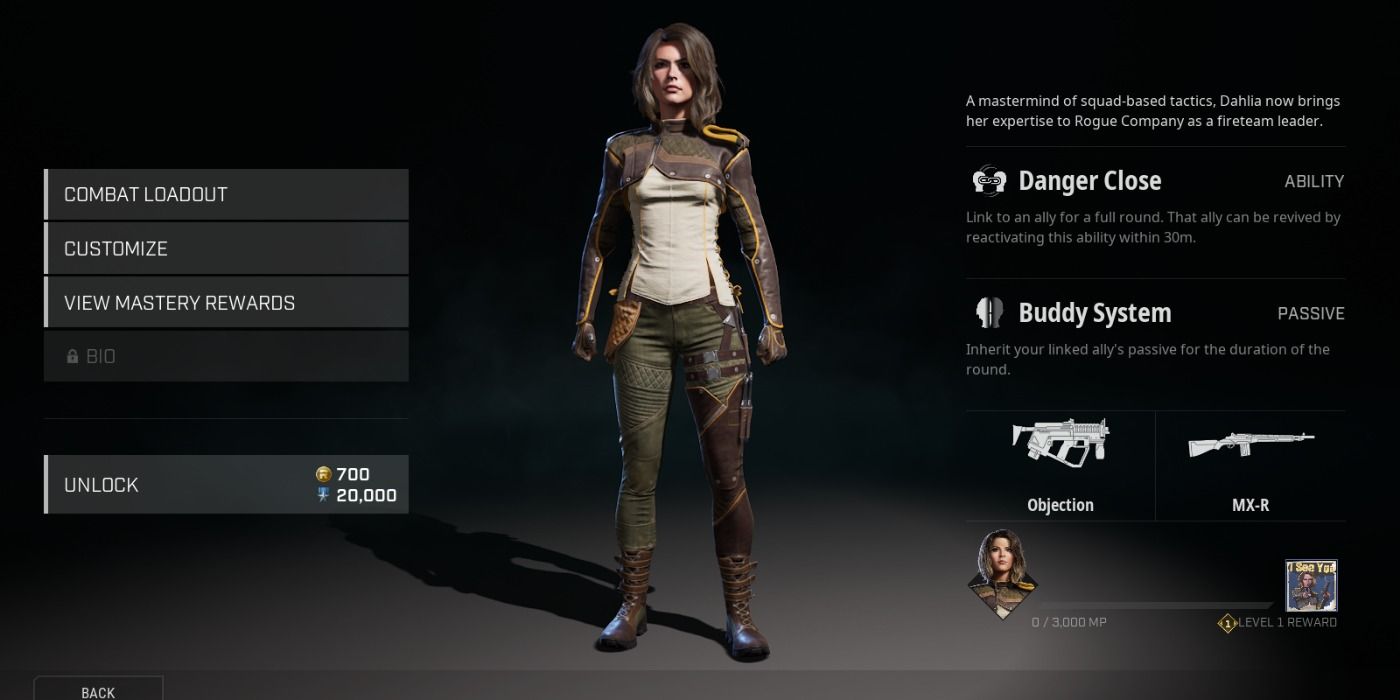
There are only two Rogues in this category as well, so it's difficult to calculate the level of versatility supports will be capable of. Saint and Dahlia have a loadout that centers on reviving allies, so other supports will likely have abilities like healing or armoring up your team.
Despite being a support character, Saint can still deal solid damage with his accurate weapons. In fact, he's one of the best Rogues at range. Meanwhile, Dahlia has the Objection SMG which wrecks opponents at close range so multiple playstyles can choose this role, and here is a guide if you want to learn how to use her effectively.
Rogues
- Saint
- Dahlia
Next: Rogue Company: Ultimate, Standard, And Starter Founder’s Packs, Explained

